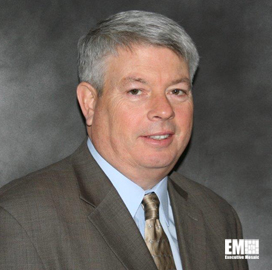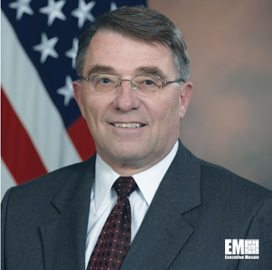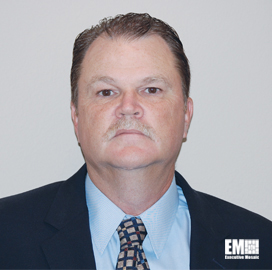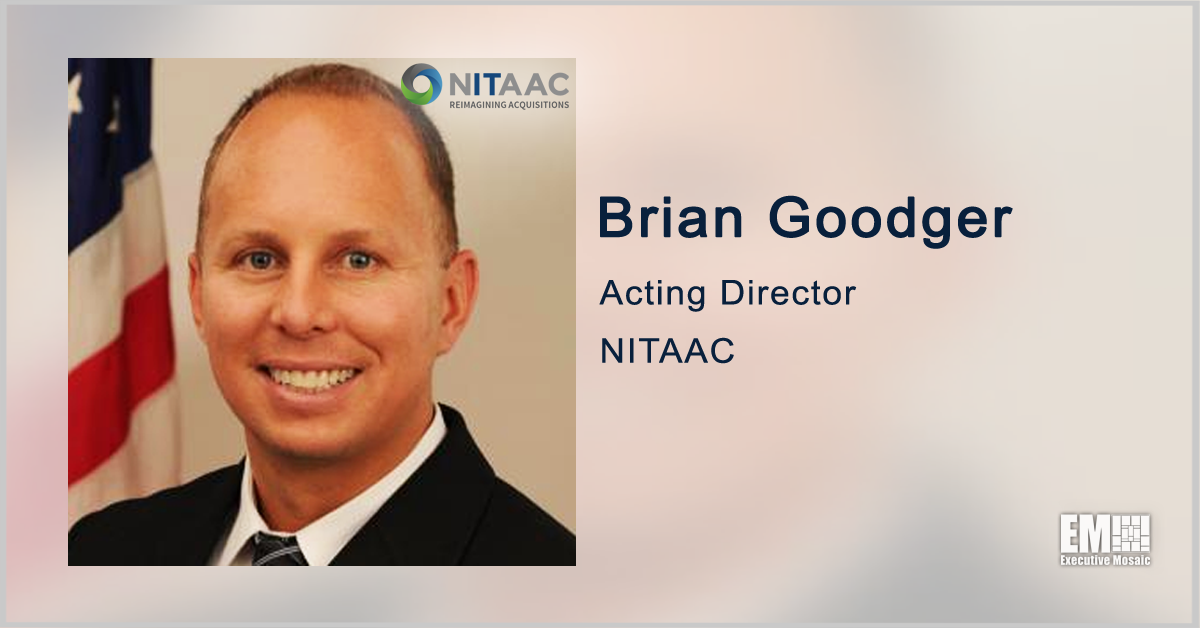 Every month, ExecutiveBiz, sister site of GovCon Wire and part of the Executive Mosaic digital media umbrella, speaks with executives from across the government contracting landscape to capture the latest analysis and perspective on the direction of the market and the inside story of the execs and companies driving the latest activity.
Every month, ExecutiveBiz, sister site of GovCon Wire and part of the Executive Mosaic digital media umbrella, speaks with executives from across the government contracting landscape to capture the latest analysis and perspective on the direction of the market and the inside story of the execs and companies driving the latest activity.
We often collaborate with ExecutiveBiz on the coverage to complement our central focus on contract awards, financial reports, mergers and acquisitions and executive moves.
We present here four samples and quotes from this month’s set of spotlights. For more in-depth coverage like these, check out the executive spotlight section on ExecutiveBiz.
 Cora Carmody, CIO and SVP for global IT at Jacobs Engineering, covered her support for STEM education; Jacob’s mobile and BYOD strategies; and some public sector projects that stand out to her from her career.
Cora Carmody, CIO and SVP for global IT at Jacobs Engineering, covered her support for STEM education; Jacob’s mobile and BYOD strategies; and some public sector projects that stand out to her from her career.
“When I say that growth is imperative, that means two things. It means top line growth by working in growing markets, but it also means taking market share. Growth is imperative means that we watch bottom line growth and are very cost conservative.
If you take the federal government and the IT and professional services, we have a lot of head room to go, as far as taking market share goes. So, that’s part of the strategy.
But when you take our cost performance and our cost conservative performance, over the years, that kind of poises us to really make a splash in the low price, technically acceptable model.”

AMERICAN SYSTEMS VP and GM for human capital and managed services Jason Frye and COO Peter Smith gave ExecutiveBiz an in-depth perspective about the company’s purchase of SAIC’s testing and evaluation business.
Frye – “Because we dropped the T&E Group whole cloth directly into the HC&MS organization, our primary focus during the first several months was integration with the back office and our reporting processes. Service delivery to customers never skipped a beat. The management team  that came over was very experienced and easily picked up and ran with the changes necessary to work within our processes.”
that came over was very experienced and easily picked up and ran with the changes necessary to work within our processes.”
Smith – “Our intent was to provide an environment in which the group could continue to perform and deliver with excellence, expand their reach through elimination of potential OCI, and reach back into additional AMERICAN SYSTEMS capability. We were fortunate to increase our presence in some customer areas where AMERICAN SYSTEMS was well known.”
 Mike Kern, Applied Communications Sciences VP of Washington Operations and business development, spoke about the company’s Bell Labs roots, its efforts to investment in the next-generation of R&D and its acquisition by the SI Organization.
Mike Kern, Applied Communications Sciences VP of Washington Operations and business development, spoke about the company’s Bell Labs roots, its efforts to investment in the next-generation of R&D and its acquisition by the SI Organization.
“The advice I give people in making a transition between government and industry is: 1) You know more than you think: don’t hesitate to share your knowledge, particularly from your past experiences and organizations – – even if it’s “not the way they do things here, ” and 2) You know less than you think: be a keen observer and consistent student of your new environment, on both the technical and the cultural.
In doing that, don’t underestimate the value of deeply understanding how the organization works; formally and informally. In a military organization, you get used to that. You understand the structure, which usually defines people’s roles and missions in a fairly consistent manner. When you go into industry, the true organizational structure and work flows have a lot of subtleties. Job descriptions are fluid, as are reporting and working relationships. It’s best to assume little, if anything.”
 George Verdon, Teradata’s director of partner management, talked about his firm’s centralized approach to managing big data, where he sees government procurement of these services heading, and the partnerships he leads with other government contractors.
George Verdon, Teradata’s director of partner management, talked about his firm’s centralized approach to managing big data, where he sees government procurement of these services heading, and the partnerships he leads with other government contractors.
“Today much of the data is silo’d and our challenge is convincing our clients of the value of integrating this data and cost savings associated with this effort. And if you look commercially, the top performing companies are leveraging “integrated data” and the associated analytic advantages to lead their respective industries– many of these top performers are Teradata customers.
These companies view their data as a strategic asset and invest accordingly. We are starting to see more of this thinking in the Government space and many of our recent new contracts in Government reflect this change in direction and culture.”





